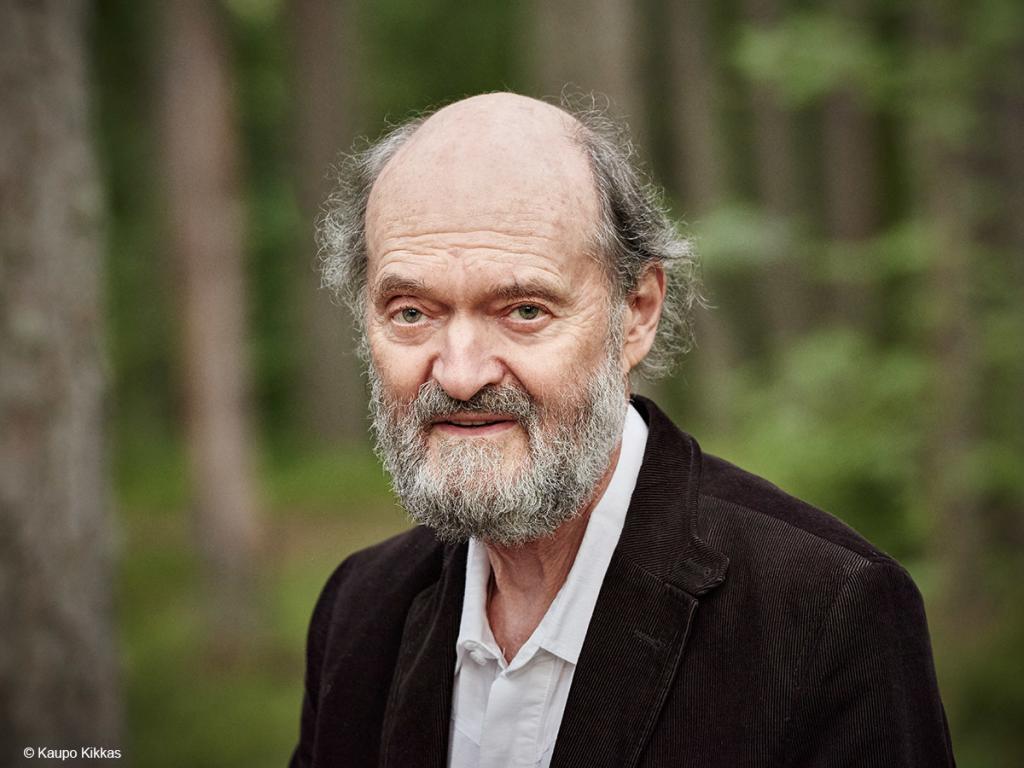The Estonian composer, Arvo Pärt, has received the Spain-based BBVA Foundation’s “Frontiers of Knowledge Award in Music and Opera”; the award recognises significant contribution in cultural creation.
The annual awards, Premios Fundación BBVA Fronteras del Conocimiento in Spanish, recognise and encourage world-class research and artistic creation, prizing contributions of broad impact for their originality and significance. The name of the scheme denotes both research work that successfully enlarges the scope of our current knowledge – pushing forward the frontiers of the known world – and the meeting and overlap of different disciplinary areas.
Due to the coronavirus crisis, the international committee deciding the award in music and opera category assessed the 31 nominees by remote means, and resolved to bestow the award in this twelfth edition on Pärt “for cultivating an original language, which has led to the creation of a unique sound world; a fresh approach to spiritual music, especially in his choral oeuvre, that reduces the musical material to the essence.”
According to the foundation, Pärt was “delighted and grateful” upon hearing of the award.
An oasis in a world over-saturated with technology
Víctor García de Gomar, the artistic director of the Gran Teatro del Liceo in Barcelona and a secretary of the award committee, defined Pärt’s “tintinnabuli” style, introduced with “Für Alina” in 1976, as “the invention of a musical grammar that is uniquely of itself, comprising repetitive sequences of a certain contained energy, chords that overlay one another so that each shift is almost a miracle. They are subtle but change their colour in such a way that the whole meaning of the structure changes with them.”
“Arvo Pärt, who creates music of great purity and spirituality, is an oasis in a world oversaturated with technology. His music is an invitation to transcend individuality,” García de Gomar said in a statement. “Reserved and generous by nature, he chooses to be close to people, his fellow humans, and does not hesitate to place his art at the service of great tragedies,” referring to “Da pacem Domine” (“Give peace, Lord”), written two days after the terrorist attack that killed 192 people on 11 March 2004 in Madrid. Pärt composed a six-minute choral prayer and dedicated it the victims.
One of the most important contemporary composers of choral music
The chair of the committee, Paul HiIlier, rated Pärt as one of the most important contemporary composers of choral music. “Pärt’s vocal output includes such major orchestral works as ‘Passio’ (1982), ‘Stabat Mater’ (1985), ‘Te Deum’ (1985), ‘Miserere’ (1989/1992), ‘Como cierva sedienta’ (1998/2002) and ‘In principio’ (2003),” the foundation said in a statement.
According to Robert Sholl, professor of music at the University of West London and an award committee member, “both believers and non-believers are affected by profound depth and sensitivity” of Pärt’s music.
“It is no exaggeration to say that Pärt’s work is constantly being performed somewhere in the world. His versatility and expressiveness have also found an outlet in film, and his music features in hundreds of titles by directors like Paolo Sorrentino, Víctor Erice and David Trueba,” the committee said in a statement. The award also highlighted that two albums by Pärt have been winners of a Grammy, and for the last eight years, he has been one of the world’s most widely performed living contemporary composers (the most performed until 2018, second most performed in 2019).
Previous laureates in “Frontiers of Knowledge Award in Music and Opera” include Steve Reich, Pierre Boulez, John Adams, Helmut Lachenmann, Sofia Gubaidulina and Kaija Saariaho.
Cover: Arvo Pärt. Photo by Kaupo Kikkas.

